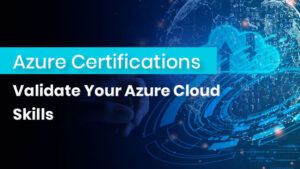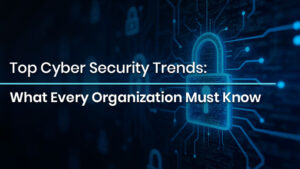
How to Harden Your Infrastructure Using CIS Benchmarks
How to Harden Your Infrastructure Using CIS Benchmarks Introduction As more organizations go faster with their digital transformation, the security and resilience of IT infrastructure
Limited-Time Offer! Get an exclusive 40% OFF on IPSpecialist Premium Monthly & Annual Plans. Use Promo Code: UPSKILLNOW at checkout.

How to Harden Your Infrastructure Using CIS Benchmarks Introduction As more organizations go faster with their digital transformation, the security and resilience of IT infrastructure

Azure Certifications – Validate Your Azure Cloud Skills Introduction Cloud computing has transformed the business landscape, providing scalability, flexibility, and affordability in a way

Top Cyber Security Trends: What Every Organization Must Know Introduction In an era marked by digital transformation, remote workforces, and rapidly evolving threat landscapes,
Table of Contents
The efficient and controlled security offered by Oracle’s cloud infrastructure and services enables you to execute your mission-critical applications and store your data confidently. The security of Oracle Cloud Infrastructure (OCI) is built upon the following fundamental components. This article covers detailed knowledge of Oracle Cloud Security.
Check Out Our Oracle Courses Now!
OCI offers several solutions for each pillar that enhance the security and compliance of the cloud platform; these are:
Customer Isolation: It enables the deployment of your application and data assets in a completely isolated environment from other tenants and Oracle workers.
Data Encryption: It helps you satisfy your security and compliance standards for cryptographic algorithms and key management by protecting your data while at rest and in transit.
Security Controls: It reduces the risk posed by malicious and unintentional user actions by restricting access to your services and separating operational duties.
Visibility: It offers thorough log data and security analytics for auditing and keeping track of resource usage. Due to this visibility, you can meet your audit obligations and lower operational risk.
Secure Hybrid Cloud: It allows you to utilize your security resources, including user accounts and policies. It enables you to access your cloud resources and protect your data and application assets using third-party security solutions.
High Availability: It offers fault-tolerant data centers that support scalable, highly available architectures resistant to network attacks.
Verifiably Secure Infrastructure: It deploys strong security controls and adheres to strict procedures throughout the whole creation and operation of cloud services. OCI complies with Oracle’s stringent security requirements through external audits, certifications, and attestations. To internal security and compliance teams, clients, auditors, and regulators, our secure infrastructure enables you to demonstrate compliance readiness.
Primary Security Considerations: Using any program safely starts with the following guiding principles. Plan, create, deploy, and manage your resources in Oracle Cloud Infrastructure by these guidelines.
To decide who requires access to what data, analyze your workflows. For example, keep subscriber data secure from other subscribers while allowing someone in your company access for management purposes.
An issue with your security plan may occasionally be inconvenient. You can secure it by being aware of each resource’s security implications.
You and Oracle both share responsibility for security in the Oracle Cloud Infrastructure. However, you must be aware of your security and compliance obligations to securely execute your workloads in OCI.
We are in charge of maintaining the security of the cloud infrastructure (including data center facilities, hardware, and software systems) in a shared, multi-tenant computing environment. You are responsible for your workload security and safe cloud resource configuration (including computing, network, storage, and database).
You are more accountable since you own the entire software stack (operating systems and above) on a fully isolated, single-tenant, bare-metal server where you deploy your application. In this environment, you are responsible for the following tasks:
Zero Trust Security has emerged as a critical concept for cybersecurity and IT professionals, fundamentally reshaping how organizations approach network security. This paradigm shift challenges traditional assumptions by assuming minimal trust for users and devices connected to an organization’s network. The underlying principle is to establish and maintain trust through carefully designed security controls.
The evolution of Zero Trust Security has been driven by factors such as the rise of public cloud services and the recognition of threats originating from both external attackers and insiders. Although adopting a Zero Trust approach demands substantial effort, it proves essential for safeguarding modern digital landscapes. Oracle’s Oracle Cloud Infrastructure (OCI) steps in to assist organizations in their Zero Trust initiatives by offering built-in security features that rapidly and effectively secure workloads in the cloud.
Embracing Zero Trust necessitates a commitment to gradual advancement in technical architecture and business processes. OCI, as a next-generation cloud, aligns with this approach. Designed to empower business transformation, OCI furnishes high-performance computing for cloud-native and enterprise IT workloads. By prioritizing a security-first approach, Oracle ensures that security is seamlessly integrated into OCI’s foundation.
Oracle supports organizations in their security journey through three core tenets: simplicity, offering user-friendly security controls; prescriptiveness, imparting expert guidance for a robust security posture; and integration, embedding security across all service levels. This approach delivers comprehensive security across infrastructure, platform, and software services by reducing manual tasks and human errors.
Oracle Cloud Security is a robust offering designed to help organizations maintain their cloud resources’ confidentiality, integrity, and availability. Organizations should consider their security responsibilities and implement additional security measures to meet their specific security objectives.
© 2025 All rights reserved | Privacy Policy | Terms and Conditions | Sitemap | Cookie Policy




